Filter by

The politics of knowledge in inclusive development and innovation
- Edition
- -
- ISBN/ISSN
- 9781003112525
- Collation
- -
- Series Title
- -
- Call Number
- -
- Edition
- -
- ISBN/ISSN
- 9781003112525
- Collation
- -
- Series Title
- -
- Call Number
- -

The knowledge capital of nations :education and the economics of growth
A rigorous, pathbreaking analysis demonstrating that a country's prosperity is directly related in the long run to the skills of its population.OCLC-licensed vendor bibliographic record.
- Edition
- -
- ISBN/ISSN
- 9780262329170
- Collation
- 1 online resource (xii, 262 pages) :illustrations.
- Series Title
- -
- Call Number
- -

Dynamics among Nations: The Evolution of Legitimacy and Development in Modern…
"Liberal internationalism has been the West's foreign policy agenda since the Cold War, and the West has long occupied the top rung of a hierarchical system. In this book, Hilton Root argues that international relations, like other complex ecosystems, exists in a constantly shifting landscape, in which hierarchical structures are giving way to systems of networked interdependence, changing ever…
- Edition
- -
- ISBN/ISSN
- 9781461950349
- Collation
- 1 online resource (xiii, 332 pages)
- Series Title
- -
- Call Number
- -
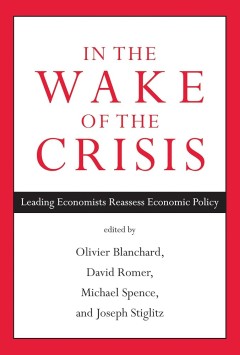
In the Wake of the Crisis: Leading Economists Reassess Economic Policy
Conference proceedings.In 2011, the International Monetary Fund invited prominent economists and economic policy makers to consider the brave new world of the post-crisis global economy. The result is a book that captures the state of macroeconomic thinking at a transformational moment. The crisis and the weak recovery that has followed raise fundamental questions concerning macroeconomics and …
- Edition
- -
- ISBN/ISSN
- 9780262301831
- Collation
- 1 online resource (x, 239 pages) :illustrations
- Series Title
- -
- Call Number
- -
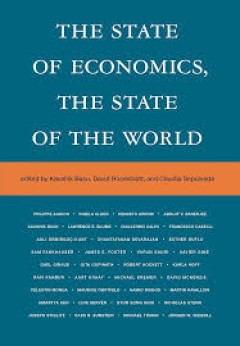
The state of economics, the state of the world
Leading economists address the ongoing challenges to economics in theory and practice in a time of political and economic crises.OCLC-licensed vendor bibliographic record.
- Edition
- -
- ISBN/ISSN
- 9780262353472
- Collation
- 1 online resource (536 pages).
- Series Title
- -
- Call Number
- -
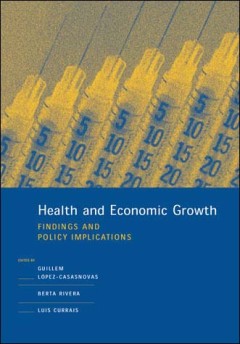
Health and economic growth : findings and policy implications
While human capital is a clear determinant of economic growth, only recently has health's role in this process become a focus of serious academic inquiry. By marrying the separate fields of health economics and growth theory, this groundbreaking book explores the explicit mechanisms by which a population's individual and collective health status affects a nation's economic development and perfo…
- Edition
- -
- ISBN/ISSN
- 9780262290586
- Collation
- 1 online resource (x, 385 pages) : illustrations
- Series Title
- -
- Call Number
- 330 HEA
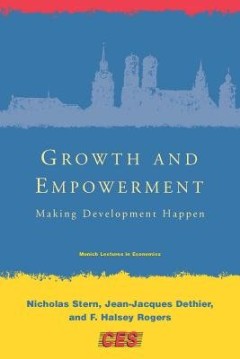
Growth and empowerment :making development happen
Despite significant gains in promoting economic growth and living conditions (or "human progress") globally over the last twenty-five years, much of the developing world remains plagued by poverty and its attendant problems, including high rates of child mortality, illiteracy, environmental degradation, and war. In Growth and Empowerment, Nicholas Stern, Jean-Jacques Dethier, and F. Halsey Roge…
- Edition
- -
- ISBN/ISSN
- 9780262284349
- Collation
- 1 online resource (xxxiv, 463 pages) : illustrations.
- Series Title
- Munich Lectures in Economics
- Call Number
- -

https://doi.org/10.7551/mitpress/3001.001.0001?locatt=mode:legacy;http://www.…
This is the first broad cross-country assessment of the ties between financial structure--the mix of financial instruments, institutions, and markets in a given economy--and economic growth since Raymond Goldsmith's 1969 landmark study. Most studies focus on developed countries and compare bank-based and market-based systems. Debates over the relative merits of the two systems have relied on ca…
- Edition
- -
- ISBN/ISSN
- 9780262271455
- Collation
- 1 online resource (vi, 436 pages) :illustrations
- Series Title
- -
- Call Number
- -
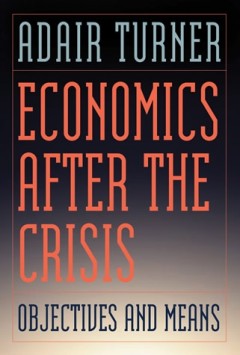
Economics after the crisis :objectives and means
The global economic crisis of 2008-2009 seemed a crisis not just of economic performance but also of the system's underlying political ideology and economic theory. But a second Great Depression was averted, and the radical shift to New Deal-like economic policies predicted by some never took place. Perhaps the correct response to the crisis is simply careful management of the macroeconomic cha…
- Edition
- -
- ISBN/ISSN
- 9780262301756
- Collation
- 1 online resource (xiii, 108 pages) :illustrations.
- Series Title
- -
- Call Number
- -
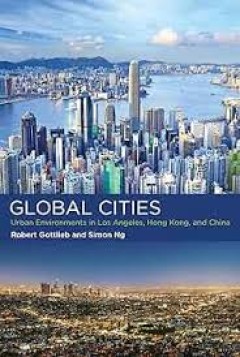
Global Cities: Urban Environments in Los Angeles, Hong Kong, and China
Over the past four decades, Los Angeles, Hong Kong, and key urban regions of China have emerged as global cities - in financial, political, cultural, environmental, and demographic terms. In this book, Robert Gottlieb and Simon Ng trace the global emergence of these urban areas and compare their responses to a set of six urban environmental issues. These cities have different patterns of develo…
- Edition
- -
- ISBN/ISSN
- 9780262338868
- Collation
- 1 online resource (xviii, 447 pages) :illustrations, maps.
- Series Title
- -
- Call Number
- -
 Computer Science, Information & General Works
Computer Science, Information & General Works  Philosophy & Psychology
Philosophy & Psychology  Religion
Religion  Social Sciences
Social Sciences  Language
Language  Pure Science
Pure Science  Applied Sciences
Applied Sciences  Art & Recreation
Art & Recreation  Literature
Literature  History & Geography
History & Geography